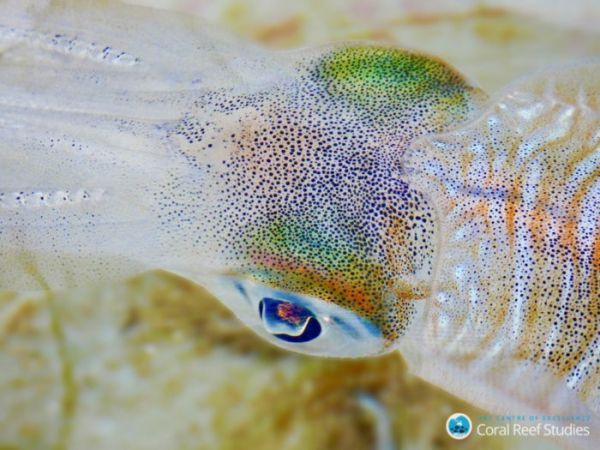Scientists have found that high carbon dioxide levels cause squid to bungle attacks on their prey.
PhD candidate Blake Spady from the ARC Centre of Excellence for Coral Reef Studies (Coral CoE) at James Cook University (JCU) led the investigation. He said that the oceans absorb more than one-quarter of all the excess carbon dioxide (CO2) released into the atmosphere by humans and this uptake of additional CO2 causes seawater to become more acidic.
“Climate models project that unless there is a serious commitment to reducing emissions, CO2 levels will continue increasing this century to reach levels that will have far-reaching effects on sea life,” he said.
Mr Spady said the team chose to study cephalopods (a group that includes squid, cuttlefish and octopuses) because while most previous behavioural studies have focused on fishes, the effects of elevated CO2 on highly active invertebrates is largely unknown.
“Cephalopods also prey on just about anything they can wrap their arms around and are themselves preyed upon by a wide range of predator species, so they occupy an important place within marine food webs.”
Read more at ARC Centre of Excellence for Integrated Coral Reef Studies
Image: Close up of adult bigfin reef squid, Sepioteuthis lessoniana. Credit: Blake Spady.


